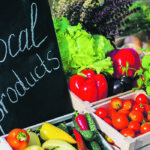Newfoundlanders don’t want to depend on other Canadians for food. A few years ago, the government of Newfoundland and Labrador set a goal of producing 20 percent of its own food by 2022. The would be a substantial improvement from the current 10 percent. “We are well positioned … because Newfoundland and Labrador is the […] Read more
News
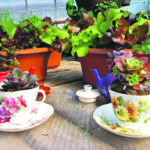
First-time growers dig a new trend
More Canadians got their hands dirty this year and took up gardening. Pandemic gardening became the thing to do in 2020. Regular and long-time gardeners who couldn’t find their favourite seeds or bulbs last spring may have been mystified by the run on stock but it seems many rookies wanted to produce their own food. […] Read more
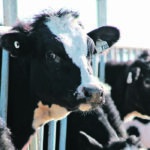
Dairy, hog sectors suffer hits
The dairy industry has rebounded from economic shutdown in early stages of the pandemic while the hog industry continues to struggle with low prices and logistics issues
Two of Canada’s livestock industries got savaged in the first COVID-19 lockdowns and outbreaks, but both have stabilized and one is recovering. Rather than the disasters that ravaged both the dairy and hog industries in spring, the two production systems have fallen out of the national news. “There’s a lot more confidence in the industry […] Read more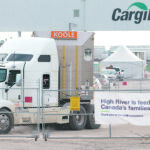
How processors weathered the COVID storm
For a while, problems at North American meatpacking plants were front page news. As infections afflicted thousands of workers at numerous major facilities, including Canada’s two biggest beef processors, the outlook appeared dire. Could they keep operating? Could plants that had been shut down be brought back into production? Would new health protocols and supply […] Read more
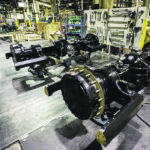
Feeding the agricultural machine during COVID-19
It was unclear if farmers would have access to parts they needed to keep equipment running when the pandemic first hit North America. Agriculture equipment manufacturers have been considered a critical service through the pandemic, so they have stayed open. But often, they are global enterprises that rely on international supply chains, and it is […] Read more
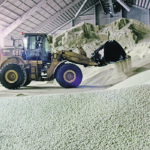
COVID-19 pandemic skips fertilizer industry
COVID or no COVID, Mother Earth’s population needs food. Up to half the food we eat wouldn’t be available without fertilizers, explaining why the fertilizer sector wasn’t hard hit. The vital fertilizer industry avoided major COVID-19 disruption because farmers continue to buy commercial nutrients for their crops. Demand overall remained strong and suppliers for the […] Read more

Lean cuisine
Much like the people afflicted by the COVID-19 itself, the pandemic’s effect on the hospitality industry varies from manageable to catastrophic. Jim Bence, president and chief executive officer of the Saskatchewan Hotel and Hospitality Association, called it a “perfect storm.” First came the lockdowns this spring, and with it, recreational travel almost entirely stopping. Major […] Read more
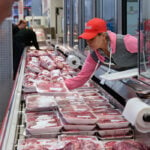
New approaches needed to ensure food security
As much as it is a time of crisis, the COVID-19 pandemic is also a time for the agri-food sector to explore new opportunities, said an industry expert. This moment in history hasn’t simply been “problem after problem after problem,” said Marty Seymour, director of industry relations at Farm Credit Canada in Regina. The pandemic […] Read more

Business as (un)usual
This summer, I asked a farming neighbour of mine in Roblin, Man., how his operation has been affected by the pandemic. Other than having to put on a mask a few times when he went to pick up supplies, he couldn’t think of a single way he had to change how his farm does business. […] Read more

Battery recycling program for Sask.
Saskatchewan will implement a battery recycling program beginning Jan. 1. The 73 SARCAN collection depots, along with other designated sites, will accept single-use and rechargeable consumer batteries that weigh less than five kilograms each, excluding lead acid batteries. The program will be operated by a non-profit environmental stewardship organization called Call2Recycle Canada. It has been […] Read more



